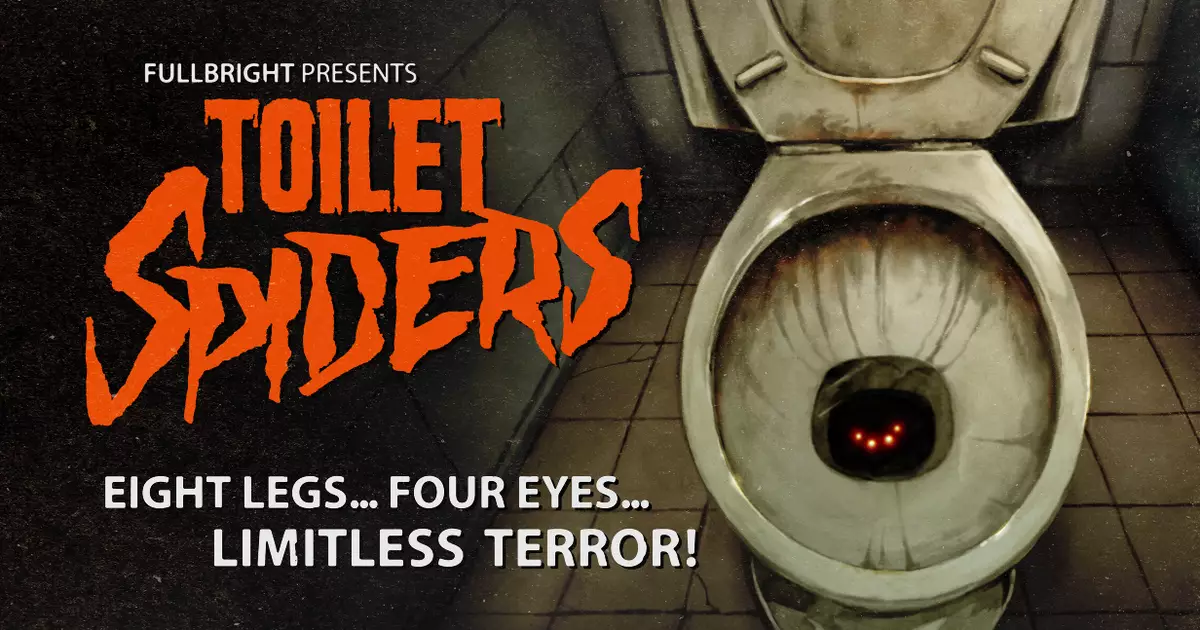Fullbright Studios has carved out a niche in the gaming world with its deeply narrative-driven experiences, starting with the indie phenomenon Gone Home. The game’s innovative storytelling paired with interactive exploration allowed players to peel back layers of familial intimacy, revealing the intricate web of emotions and struggles that reside within a seemingly mundane family home. This masterful blend of personal narrative and immersive gameplay carved a path for subsequent projects, including Tacoma, which further experimented with the boundaries of storytelling through holographic interactions in a sci-fi setting. However, the recent venture into a realm remarkably different from its predecessors—the newly launched Toilet Spiders—has raised eyebrows, eliciting thoughts on both its gameplay mechanics and thematic connections to the studio’s tumultuous recent history.
Toilet Spiders transports players into an almost surreal survival landscape, where mundane fears manifest into the grotesque and abnormal. The game is categorized as a lo-fi horror experience, with elements that lend themselves to existential dread. Players must navigate through a precarious Exclusion Zone while contending with grotesque radioactive spiders that lurk in neglected toilets—a truly bizarre and yet compelling premise. The mechanics of resource management and risk assessment compound the psychological tension, as players must weigh the stakes inherent in battling against these nightmarish creatures while searching for necessary items to progress.
Set against the backdrop of a tyrannical regime, players assume the role of an unnamed volunteer pitted against the odds in a decision-heavy labyrinth. This contributes to a sense of isolation that parallels the earlier emotional journeys crafted in Fullbright’s repertoire. However, in contrast to its more traditional narrative forms, Toilet Spiders leans heavily into absurdity, intertwining horror with humor, as it invites players to engage with the ridiculousness of its premise.
The game’s distinctive angle on horror is marked by its unusual enemies—giant spiders that emerge from toilets. Here lies an exploration of absurdity; through the lens of arachnophobia, the game amplifies the innate anxieties we harbor about everyday scenarios. The idea of having to confront a ‘toilet spider’ merges the ordinary with the horrifying, embodying the fear of unexpected terror in the most private of spaces. By cleverly utilizing items such as old light bulbs and flash grenades, players must navigate their fears while simultaneously embracing the theatricality of the game’s premise.
However, a critique arises from the game’s mechanics—or rather, the missed opportunities within them. The absence of a ‘pooping’ mechanic is conspicuous, as it could have injected an additional layer of tension, amplifying the very anxiety that the game attempts to evoke. The interactions between fear and the toilet premise could heighten the absurdity further, allowing for a gripping commentary on the irrational aspects of anxiety. Even the option to play it while using an actual toilet could have lent itself to a nuanced experience, pushing the game’s commitment to blending genres and blurring boundaries.
An often overlooked yet pivotal aspect of Toilet Spiders is the history associated with Fullbright’s co-founder, Steve Gaynor. Accusations of workplace toxicity have cast a long shadow over the studio’s recent endeavors, complicating the narrative surrounding its latest release. While Toilet Spiders can easily be misinterpreted as a commentary on Gaynor’s struggles or a reflection of the trauma experienced by former staffers, engaging with the game solely through this lens isn’t entirely fair. The studio, stepping into new thematic territory, seems to grapple with the complexities of its identity in the wake of scandals that have reshaped its public perception.
Though the B-movie stylings may seem trivial, they potentially signify a deeper commentary on the absurdities of creativity amid chaos. Fullbright’s ability to pivot from emotional narratives to stark corporeal horror invites players into a space of reflection on the nature of fear—both psychological and existential.
Toilet Spiders exemplifies a fascinating evolution within Fullbright’s portfolio. While it invites players to confront fears in an imaginative and humorous context, it also serves as a reflection of the studio’s ongoing transformation. Emerging from the remnants of its past, the game blurs the line between personal commentary and the bizarre, urging players to explore the absurd alongside their fears. As we navigate this new terrain filled with radioactive arachnids and resource shortages, we must also consider the broader implications of creativity amid controversy—an intensely modern existential crisis indeed.


Leave a Reply